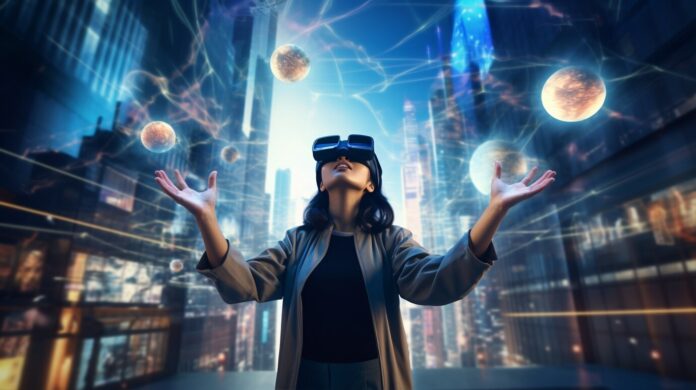Virtual worlds have transformed our understanding of digital experiences, offering immersive environments that bridge the gap between reality and imagination. This article delves into virtual worlds’ evolution, applications, and impact, exploring their significance in modern society.
Introduction
In technology and entertainment, virtual worlds represent digitally constructed environments where users can interact, explore, and engage with virtual entities and objects. These environments, often accessed through VR (Virtual Reality) or AR (Augmented Reality) technologies, have gained widespread popularity due to their versatility and potential across various industries.
Evolution of Virtual Worlds
Virtual worlds have a rich history, evolving from early conceptual ideas to sophisticated platforms. The concept traces back to science fiction literature and early computer simulations, gradually progressing into the immersive digital landscapes we experience today.
Types of Virtual Worlds
Virtual worlds encompass diverse categories, including:
Gaming Worlds
Gaming platforms like Fortnite, Minecraft, and Second Life offer interactive experiences where players can engage in quests, build virtual structures, and socialize with others.
Social Platforms
Virtual worlds like Facebook Horizon and VRChat focus on social interaction, allowing users to meet, communicate, and collaborate within digital communities.
Educational and Business Environments
Virtual classrooms and business simulations enable training and collaboration in realistic settings, enhancing learning and productivity.
Technologies Behind Virtual Worlds
Virtual worlds leverage advanced technologies such as VR headsets, motion tracking, and 3D rendering to create immersive experiences. AR overlays digital content onto the real world, blurring the boundaries between physical and virtual environments.
Impact of Virtual Worlds
Benefits
- Enhanced creativity and expression
- Improved remote collaboration
- Accessible education and training
- New avenues for entertainment and leisure
Challenges
- Privacy and data security concerns
- Technological barriers to accessibility
- Potential for addiction and social isolation
Social Interaction
Virtual worlds facilitate diverse forms of communication, from voice chats to shared activities, fostering unique social dynamics and digital communities.
Business Applications
Businesses harness virtual worlds for marketing, product showcases, and virtual events, creating interactive experiences that resonate with consumers.
Education and Training
Virtual classrooms and simulations offer immersive learning environments, enabling hands-on experiences and practical skill development.
Entertainment and Gaming
The gaming industry embraces virtual worlds, creating expansive landscapes and narratives that captivate audiences and redefine interactive storytelling.
Future Trends
The future of virtual worlds holds promise for the metaverse—a collective virtual space combining physical and digital elements, revolutionizing communication, commerce, and entertainment.
Conclusion
In conclusion, virtual worlds represent a dynamic frontier in digital innovation, transforming how we learn, work, and play. As technology continues to evolve, the potential of virtual Digital environments to reshape society and redefine human interaction is boundless.
FAQs
What are the key technologies driving virtual worlds?
Virtual worlds use VR, AR, and 3D graphics rendering to create immersive user experiences.
How are virtual worlds used in education?
Virtual classrooms and training simulations allow educators and learners to engage in immersive learning experiences, enhancing comprehension and retention.
What are the ethical concerns surrounding virtual worlds?
Privacy, data security, and the potential impact on real-world social interactions are key ethical considerations associated with virtual environments.
How can businesses benefit from virtual worlds?
Businesses utilize virtual worlds for marketing campaigns, product launches, and interactive customer experiences, enhancing brand engagement and outreach.
What is the metaverse, and how does it relate to virtual worlds?
The metaverse is a collective virtual space that integrates physical and digital elements, envisioning a seamless blend of real-world interactions and digital experiences.
-
You’ll also like this.
Must visit the home page:




